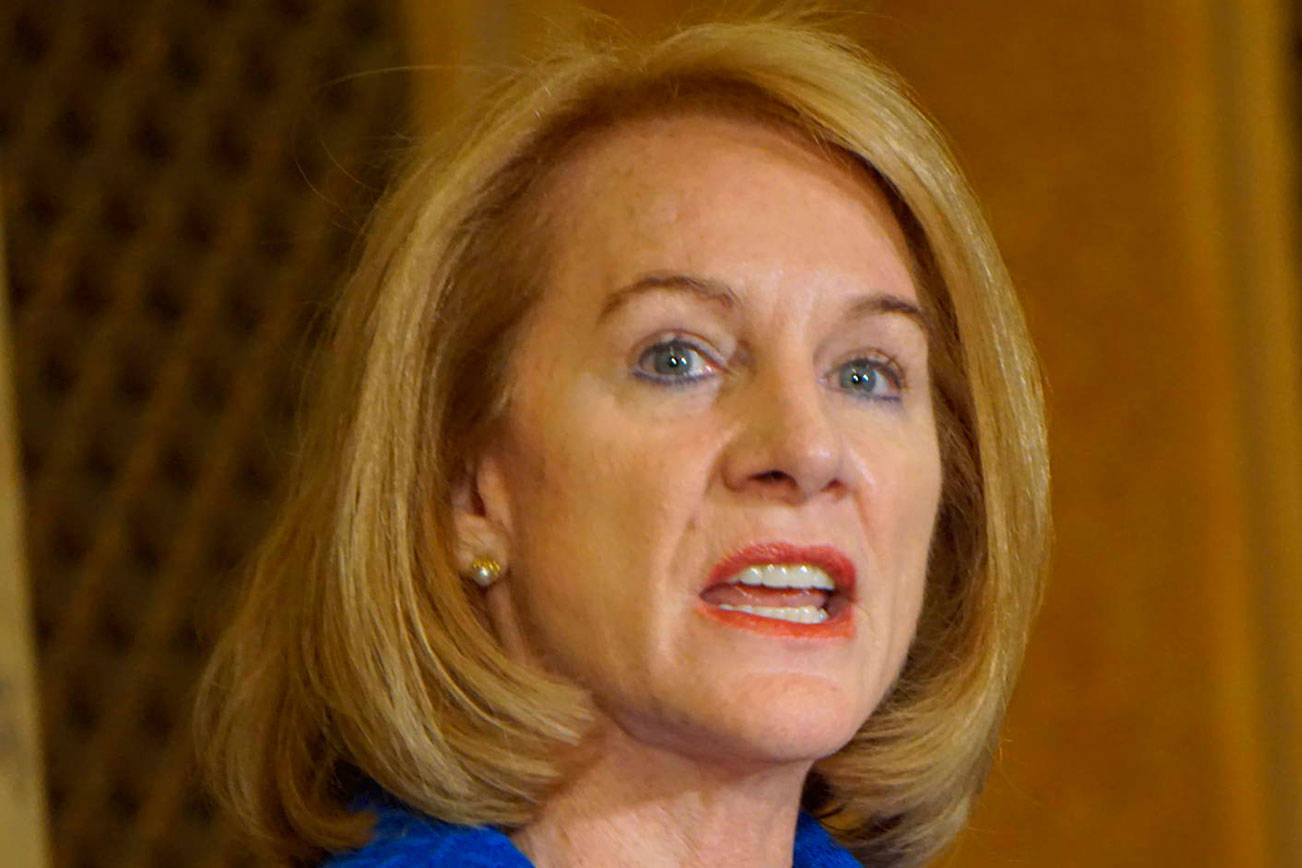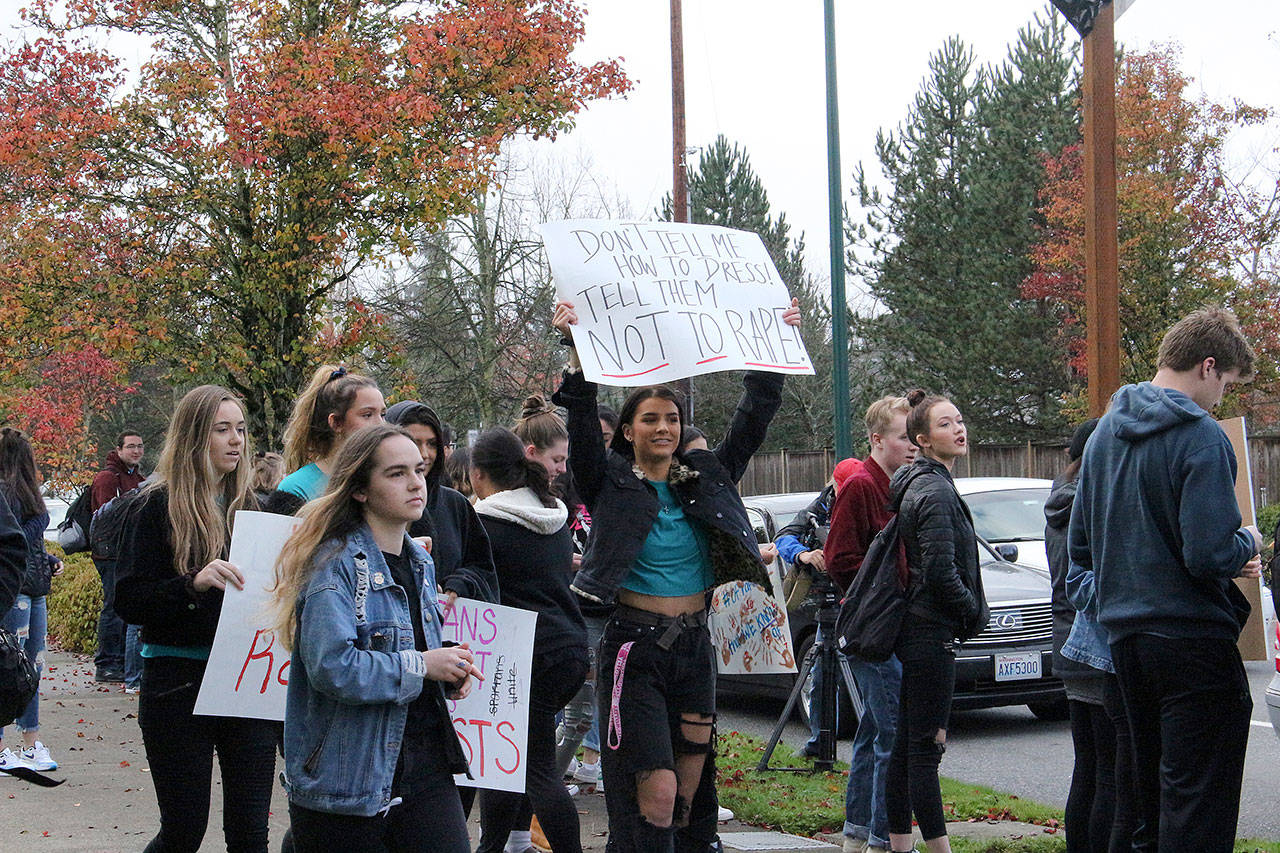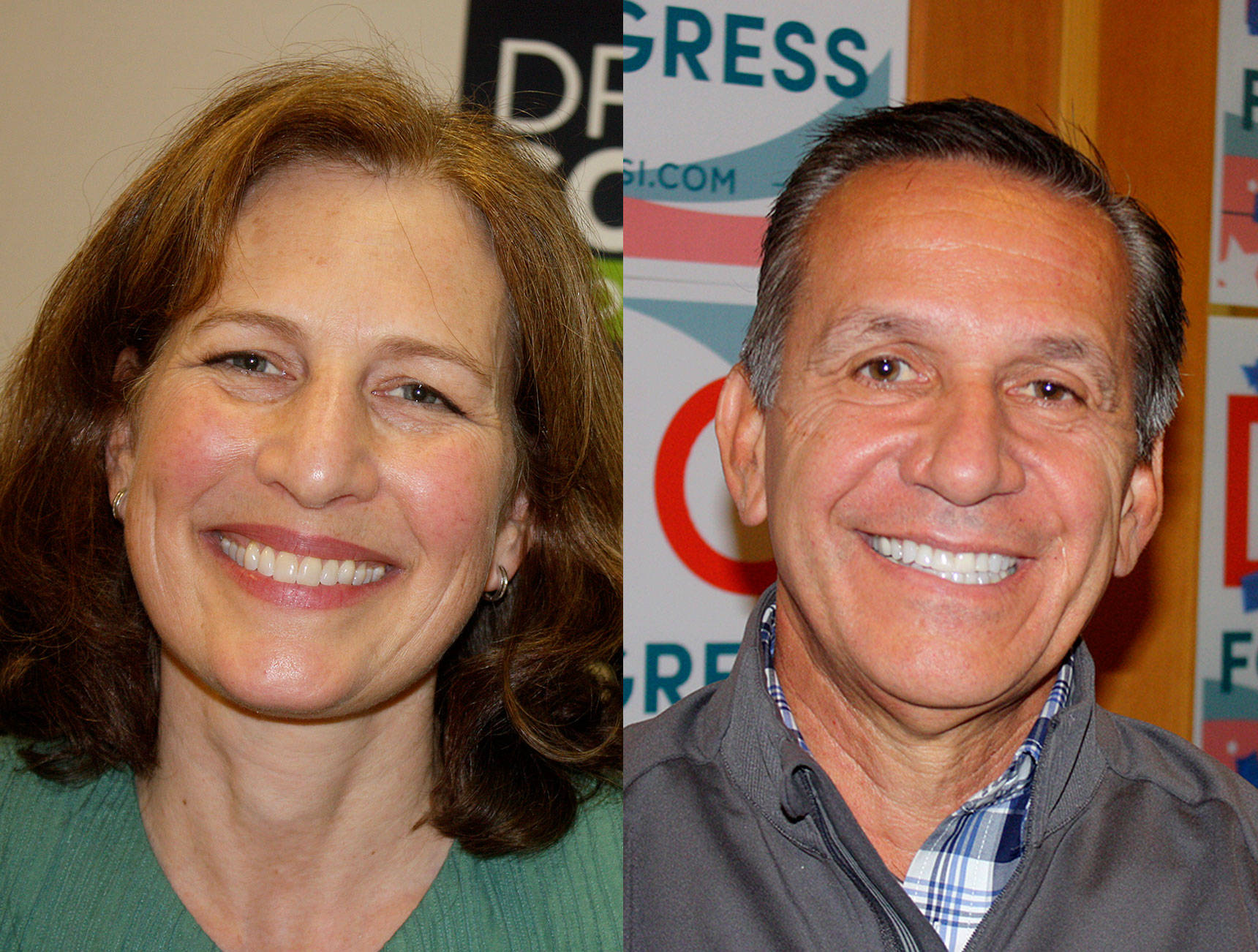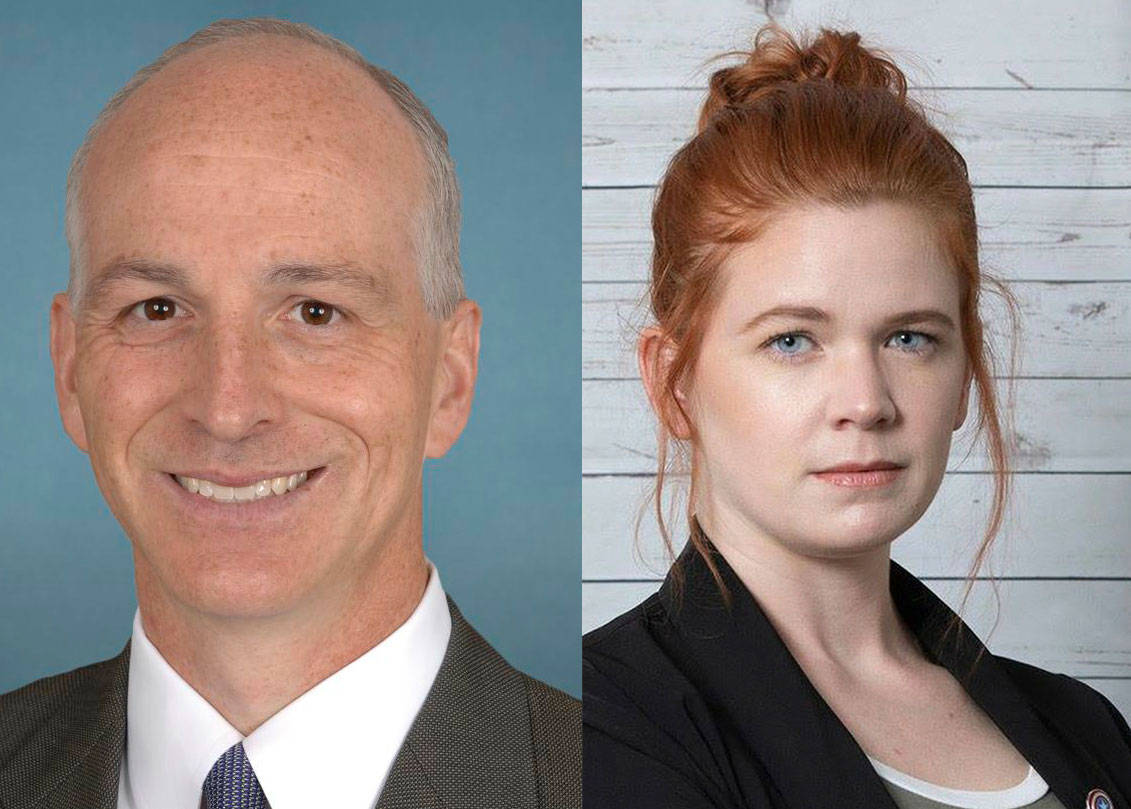With the 2018 legislative session now underway in Olympia, lawmakers are preparing to introduce a bill that would eliminate the death penalty in the state and require people convicted of first-degree murder to serve life sentences without the possibility of parole.
Washington State Attorney General Bob Ferguson requested Senate bill 6052 after Senate bills proposing the same legislation did not pass through a committee hearing last year.
“I’m reasonably optimistic that this could be the year,” Ferguson said, mentioning the bill’s bipartisan sponsorship. “The votes are there.”
Despite other legislative priorities, Ferguson said this year might be different with a Democratic majority in the Senate.
“The fact is that taxpayers foot the multimillion-dollar appeals process for the accused and we spend $50,000/year for incarceration,” Sen. Maureen Walsh, R-Walla Walla, the bill’s prime sponsor, wrote in an e-mail. “A life sentence with NO chance of early release saves money and issues the ultimate punishment by denying the convicted their freedom and liberties for life just as they did their victim.”
Not denying an individual’s right to appeal, Walsh also noted that there are cases in which an individual can be exonerated if new evidence arises.
Still, the appeals process and litigation for these cases can cost the state millions of dollars, which Senator Walsh said outweighs the cost of keeping someone in prison for life in many cases.
In a 2015 study from Seattle University’s School of Law examining 147 aggravated first-degree murder cases since 1997, authors estimated the average cost of capital-punishment cases to be more than $3 million, compared to cases that did not seek capital punishment, which average about $2 million.
The largest differential factors are trial-level prosecution costs, which are 2.3 times more expensive in capital-punishment cases than in cases that do not seek the death penalty; court and police costs, which are 3.9 times more costly; and appeals, which are 5.7 times more costly.
Walsh said the economic argument is a compelling one, but adds that stories of the lives affected by the death penalty are also worth discussing.
Currently, eight incarcerated individuals sit on death row, according to the Washington Department of Corrections. The last person to be executed in the state was Cal Coburn Brown in 2010.
In February 2014, Governor Jay Inslee instituted a moratorium on executions in Washington. The moratorium allows Inslee to grant reprieves from execution, but does not pardon the inmates. According to a press release last year, capital punishment is “unequally applied” and “sometimes dependent on the size of the county’s budget.” TAYLOR MCAVOY
NO CAPITAL GAINS, NO PAIN
While Democrats in the state legislature have supported enacting a capital gains tax to fund public education in the past, they aren’t itching to pass one this legislative session now that they control both the statehouse and the governorship.
At a news conference last week, Senate Majority Leader Sharon Nelson, D–Maury Island, said that while “everything will be on the table” she doesn’t see much momentum behind passing a capital gains tax assessed on profits derived from the sale of property or other assets this session due to time constraints and concerns about the concept amongst her caucus.
“There are a few members who have serious concerns about the volatility of a capital gains tax,” Nelson said, adding that the upcoming session’s short length of 60 days makes a push for the tax less likely. “Our goal is to get out on time; and time is going to fly by,” she said.
Other Democrats are more definitive. “I don’t think anyone is looking at anything unrealistic relative to timing in a 60-day session, ” said Sen. Reuven Carlyle, D–Seattle, a past proponent of the capital gains tax. “That’s just a heavy lift.”
Democrats won back control of the state Senate in November with Democrat Manka Dhingra’s electoral victory in the 45th legislative district covering Kirkland and Woodinville. They now control the house, senate, and governorship.
In 2015, in order to meet the 2012 McCleary state Supreme Court mandate that the legislature fully fund public education, House Democrats proposed a capital gains tax to help fund K-12 education before taking the plan off the table. In late 2016, Governor Jay Inslee pushed a capital gains tax for the same purpose, before compromising to pass a budget last summer that will add roughly $7 billion to education over four years through an adjustment to property taxes.
However, the court ruled last November that the legislature needs to come up with an additional $1 billion to meet their mandate, prompting questions on where the legislature is going to find the money in the upcoming session.
State Republicans have been largely opposed to past proposals from Democrats to enact a capital gains tax, a stance which hasn’t seemed to change. “I don’t see any support for a capital gains tax in my caucus because it is an income tax,” Senate Minority Leader Mark Schoesler, R–Ritzville, said at Thursday’s conference.
Similarly, Representative David Taylor (R–Moxee) said that House Republicans are opposed to new taxes to fund education.
Last month, Gov. Inslee proposed a tax on carbon emissions—the specifics of this plan will be announced next Tuesday—to help cover the shortfall.
However, Sen. Nelson played down both the carbon tax along with any discussion of a capital gains tax. “We’ll be taking a look at the carbon [tax] and certainly talking about capital gains. In a 60 day session, I’m not sure we’re going to move forward on either,” she said. JOSH KELETY
LOCKED AND LOADED
State Democrats have found an early target in firearm regulation. Senate Bill 6049 would regulate the ownership and manufacturing of large capacity magazines and make them all but illegal in most cases. “Large capacity” refers to any magazine that can hold more than 10 rounds.
The bill was requested by Washington state Attorney General Bob Ferguson, who cited a motivation in mass shootings across the country, including a 2016 shooting at a house party in Mukilteo, in which three people were killed and one was injured.
The bill was introduced by Sen. David Frockt, D-Seattle, and is sponsored by three other democratic senators: Manka Dhingra, D-Redmond; Jeannie Darneille, D-Tacoma; and Jamie Pedersen, D-Seattle.
Currently, eight states and the District of Columbia have introduced some kind of restriction on large capacity magazines. In Colorado and New Jersey, the limit is 15 rounds, and in Hawaii the ban pertains only to handguns.
Such magazines were previously banned on a federal level under the 1994 Violent Crime Control and Law Enforcement Act, which also banned semi-automatic weapons before expiring in 2004.
Pedersen said he feels confident the bill will pass, and that the key is to receive support from rural Democrats and more moderate Republicans. The senator added that he has received at least some vocal support from both parties.
“We’ve obviously had a series of high-profile shootings across the country,” Pedersen said. “This is a small step to take.”
But Dave Workman, senior editor of TheGunMag, said he doesn’t find such a ban necessary, arguing that large capacity magazines haven’t proven to be a problem. Workman said he expects a flurry of opposition from gun owners across the state, many of whom own firearms that would be affected by the ban.
Workman’s sentiments were echoed by Joe Waldron, legislative chairman of the Washington State Rifle and Pistol Association, who said his organization is firmly against the potential legislation.
Waldron said the bill emphasizes the role of guns, while legislators should be taking a look at potential societal problems that lead to mass shootings.
The legislative chairman pointed out that many pistols carry large capacity magazines, but the bill doesn’t differentiate between handguns and the assault weapons Waldron believes the bill is targeting.
Waldron called the bill “meaningless” and “unenforceable,” and said it would force Washington citizens to give up private property that is arguably protected by the Second Amendment.
“The bottom line is we oppose the bill because it’s a waste of time,” Waldron said. “They focus on the inanimate object; what they need to be focusing on is the behavior.” The senate plans to hear SB 6049 on Jan. 15. ALEX VISSER
And more …
- Sen. Doug Ericksen, R-Ferndale, will not take a job at President Donald Trump’s Environmental Protection Agency, despite a report in the Bellingham Herald last Friday stating that he had been “appointed to an EPA post in Seattle.” At a hallway press conference on Monday morning, Ericksen assured reporters that he won’t be taking the job and will remain in his current capacity as a state senator. Ericksen said that while he has received job offers from the Trump administration over the past year—he wouldn’t say what those job offers were—he turned them down; he also skirted repeated questions from reporters on whether he was considering a job offer last Friday when the Herald filed its report. “I think it’s much better for me to be here representing my constituents in the state Senate,” he said.
- Climate activists erected tents and teepees Monday in front of the Washington State Capitol building, on the opening day of the session. The climate groups are demanding the government uphold treaty rights, stop the liquified natural gas construction in Tacoma, and abolish open pen fish farms that they say endanger native salmon and other fish. Founding member of Olympic Climate Action Ed Chaad called on lawmakers to pass legislation protecting the Salish Sea from noise pollution and from risk of oil spills from increased tankers in the area. “You don’t know about a person until you’ve walked around in their fins,” said Chaad, who was dressed as an orca whale.
- Senators plan to introduce a bill that would ban gun parts intended to increase a weapon’s rate of fire, including products that produce rapid bursts or other trigger functions. This includes bump stocks, which became well-known after Stephen Paddock used such a device while killing 59 people and injuring more than 500 attending a country music concert in Las Vegas in October. A trigger crank is a similar device that also increases a firearm’s rate. Turning the crank allows a user to discharge several shots per revolution. The proposed bill has drawn fire from opponents. Despite some controversy, the bill’s secondary sponsor Republican Senator Hans Zeiger said he does not expect to see as much controversy in the Senate over this bill, noting both the Republicans in minority and the bipartisan leadership on the bill. “I’m a strong supporter of the Second Amendment,” Sen. Zeiger, R-Puyallup, said. “We need to enforce the existing laws we have rather than create new laws that restrict the rights of gun owners but I do look for areas that we can have bipartisan support for measures that enhance public safety.”
This report was produced by the Olympia bureau of the Washington Newspaper Publishers Association.








